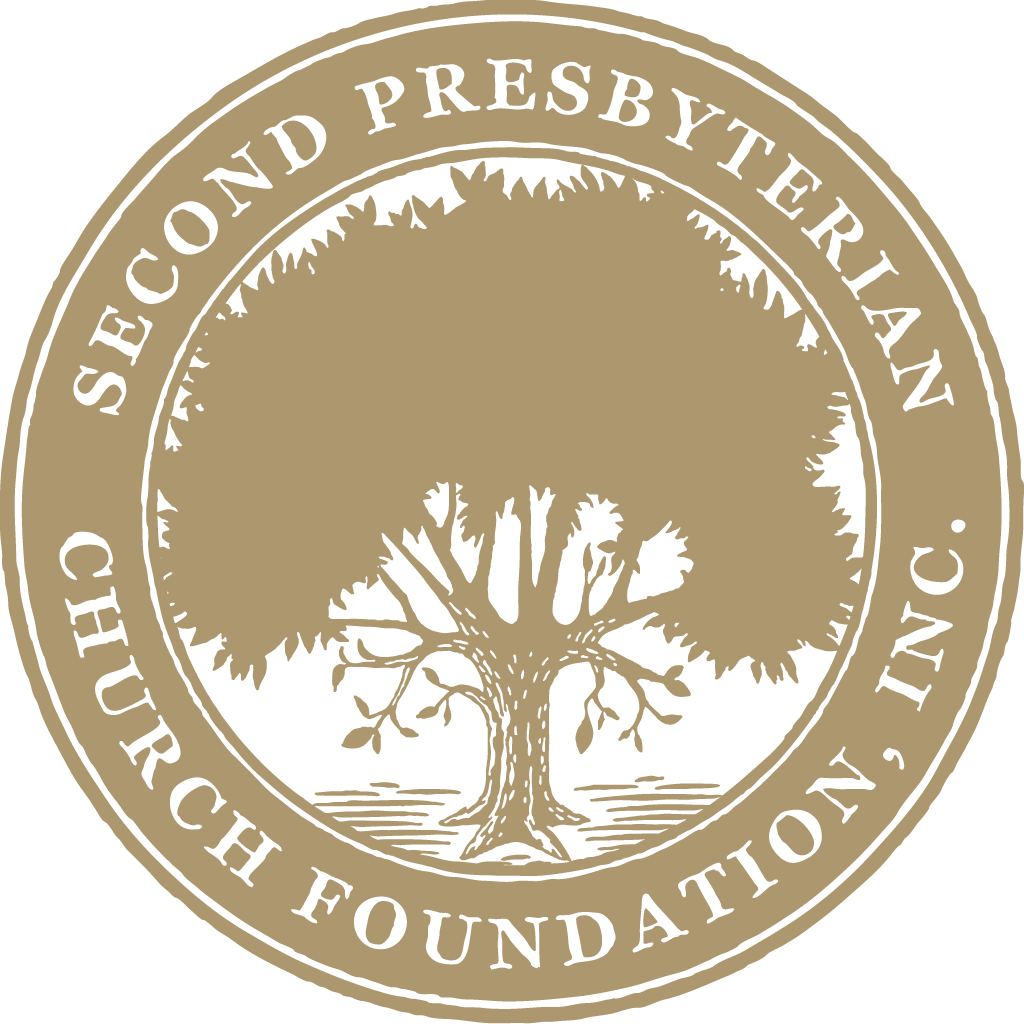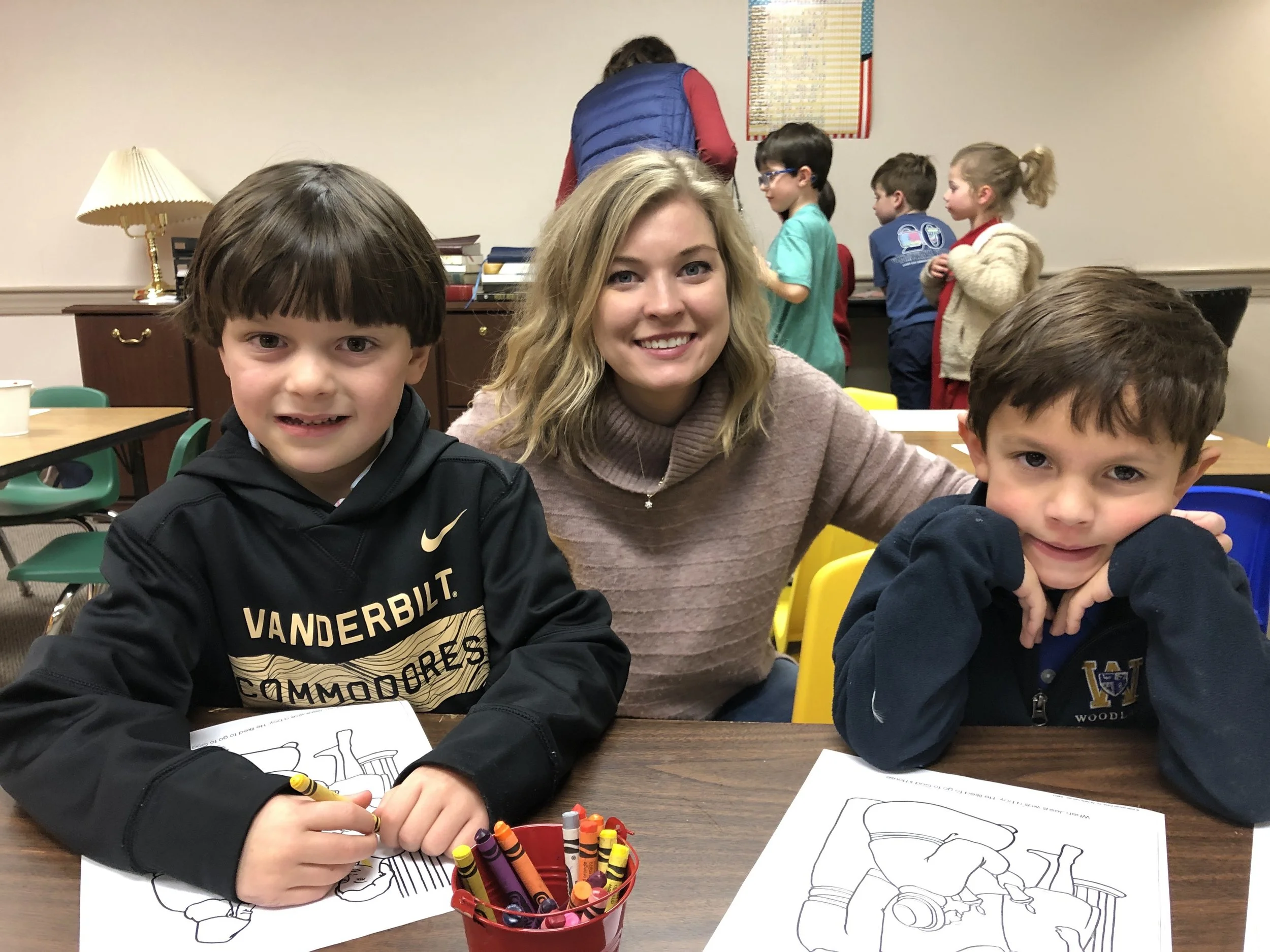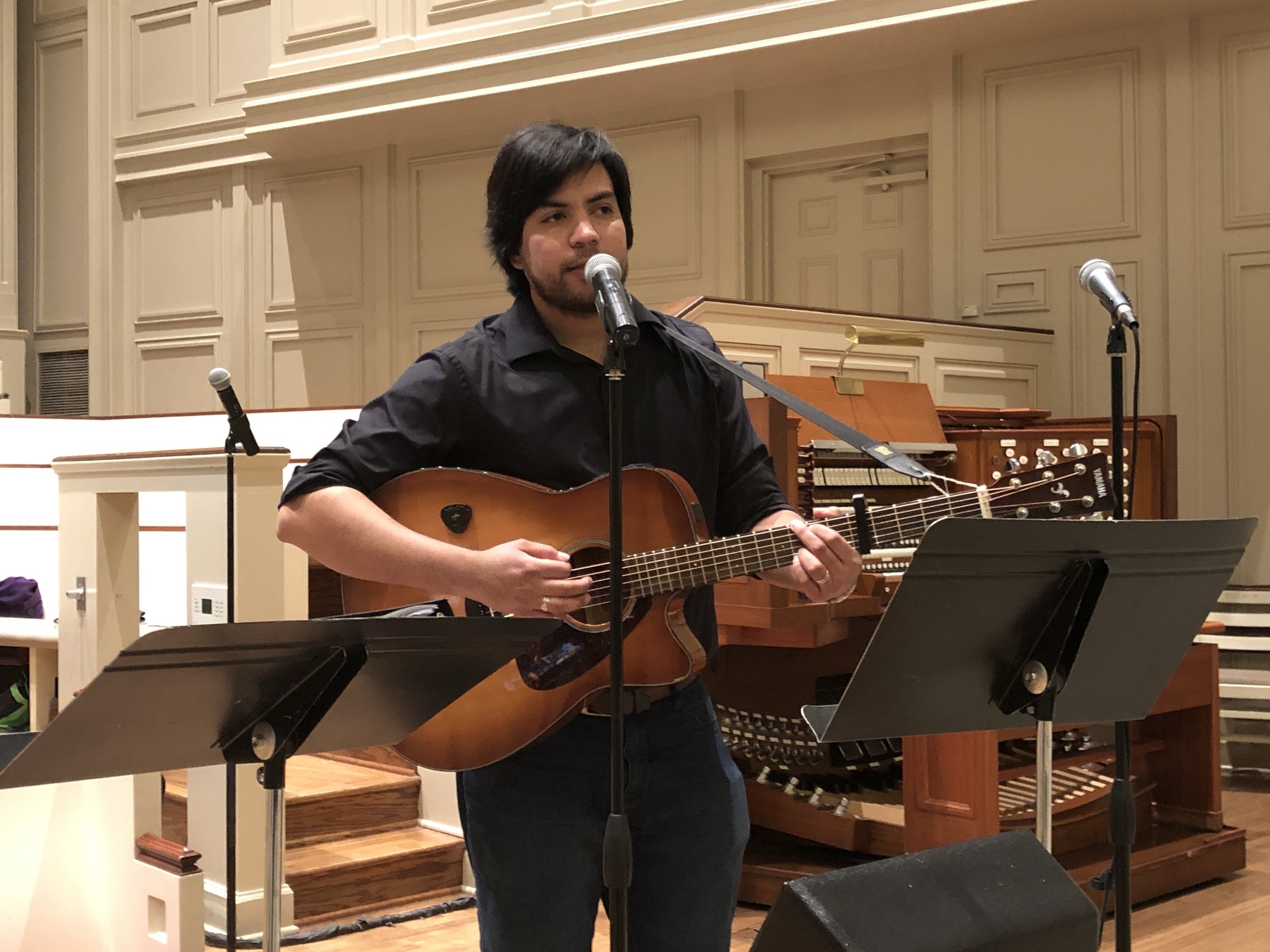Price Morrison chats with Barr Overcast who recently received a Master of Divinity from RTS Charlotte. Price served as a mentor to Barr during his years in seminary.
The history of Second’s commitment to funding seminarians who are members of our church goes back at least to the early 1960s. When researching those old and sometimes yellowed records, one has to smile at the quite literal “carbon copies” of documents; the formality and length of hand written letters of correspondence; the odd shaped forms of promissory notes for student loans to be forgiven if engaged in full time Christian work; and most notably the price of seminary in those days.
The Wills and Endowment Committee of the Session – the forerunner to the Foundation – facilitated support for about 65 seminarians until 1998 when its work came to a conclusion as it granted its pool of resources – almost $3,000,000 – to seed this then new organization, the Second Presbyterian Church Foundation.
So it is appropriate that support for seminarians is arguably a core mission and priority of the Foundation. As part of the transition, the Foundation assumed responsibility for six funds that were established either from bequests or memorials given. The majority were given in the mid 1980s.
For those who have been at Second for a while, the names on these funds will resonate – Earl Hooks, Dr. Jim Hazelwood, Blanch Pence, Martha Stewart, William Crosby and Sara Vanfossan. For most others the names will not ring a bell, but the ongoing impact of these funds is mighty. Together they established an early pattern of dedicated support for this form of intensive preparation for ministry.
Due to the nature of the funds established in another economic time, the current total of these funds is $185,000, which nets approximately $9,000 per year. In today’s economy, that covers expenses for less than one year for one student.
However, because of the historical commitment to providing support for our members called to full time ministry and the long term proven results, the Foundation Board marries funds from its undesignated fund to make up the difference in what is needed from year to year. For instance this year the total commitment is $240,000 for 30 seminarians.
Ideally the Foundation will one day have enough resources housed in a dedicated fund that will meet the expense needs for our seminarians, freeing up those undesignated dollars for missional work at home and abroad.
The Foundation recently received a bequest of $85,000 from donors who prioritized the support of seminarians during their lifetimes. Appropriately, the Board directed that bequest to establish such a fund with the hope that it will accumulate adequate resources over time.
So what is the result of the $993,000 that has been spent in the first twenty years? Immeasurable Fruit. There have been 67 students supported with an even more number of degrees earned. Degrees such as Master of Divinity, Master of Arts in Biblical Studies, Master of Arts in Theological Studies, and Master of Arts in Biblical Counseling.
Students obtained those degrees from institutions such as Reformed Theological Seminary either in Orlando, Charlotte, Jackson or as part of the RTS Global Education program; Covenant Seminary in St. Louis; or Gordon Conwell Seminary near Boston and in Charlotte, among others.
Seminarians are still required to continue into full-time Christian ministry upon graduation and the overwhelming majority of those supported remain in Christian service today. They are ordained pastors; hold non-ordained positions of leadership in churches; serve as counselors in a Christian setting; are missionaries in foreign lands; serve in many and various types of para-church organizations; and work in Christian educational environments.
The stories and the fruit are voluminous. Ten seminarians have been featured over the past year as we have learned in detail how they are sounding forth the gospel in various parts of the world.
The success of this investment is rooted in the thorough examination and application processes that candidates are subject to – for the good of all. The Foundation works with the pastoral staff of the church and the Christian Psychological Center. Lay mentors are assigned for the length of seminary and two years beyond.
More that just continuing and improving an effort begun many years ago, the Grants Committee of the Foundation constantly asks what is the prevailing purpose of an investment this large. For instance, with the inception of the LAUNCH pastoral residency program a few years ago, it was determined that support would be provided for their seminary studies as well. The basic answer however is the reminder that we provide partial support for our members while they are taking theological training to the end that they may be able to give themselves more fully to intensive study and preparation for serving our Lord Jesus Christ in full time Christian service.
Praise the Lord that so many have been raised up out of Second Presbyterian Church for this intensive mission.
Those who would like to make a donation to the Seminarian Support Fund can contact Vicki Simmons at 507-7898 or vsimmons@2pc.org.
















